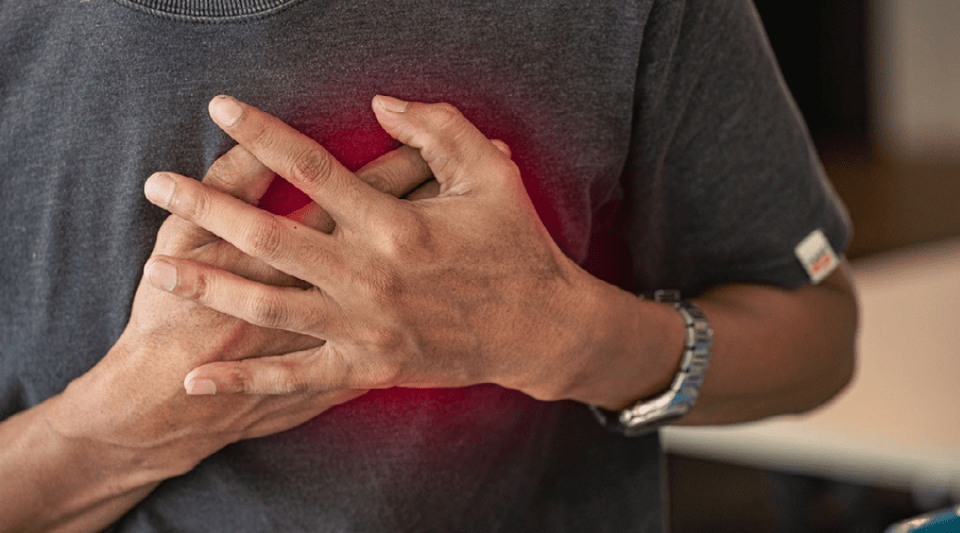Dr Manel Sabaté, head of the Interventional Cardiology Section in the Hospital Clínic Cardiovascular Institute, explains the difference between the actual pain of a heart attack and other types of pain, which may be thought to be due to a heart attack, but are not.
“Pain in the heart area, when caused by a heart attack, leads to feeling of oppression in the chest that feels like a concrete slab is pressing on it. This discomfort extends to the neck and even to the arms. It is a pain that does not go unnoticed, which is why very often people who suffer it think they are going to die,” explains Dr Sabaté.
Thus, if you experience any acute feeling of discomfort in the chest, even if it is not exactly as described above, healthcare professionals recommend you consult them as soon as possible.
However, some situations or diseases can cause symptoms that may be confused with those of a heart attack. These are the main ones, according to Dr Sabaté:
- Oesophageal reflux: A burning pain sensation felt in the oesophagus, near the heart. This occurs especially after eating, when lying down. A digestive problem can cause gastric juices to enter the oesophagus which produces the burning sensation. This is why oesophagus spasms can sometimes cause pain similar to that of a heart attack.
- Muscle pain in the chest area: this pectoral muscle pain usually occurs after a strain or receiving a blow. The pain of a heart attack hurts even when you are still. If the pain is muscular, however, your chest will hurt only when you move it.
- Anxiety disorder: When a person has an anxiety attack, they may feel chest pain and be short of breath, which may make them think they are having a heart attack. If these symptoms are experienced, the medical team should still be consulted, since depressed or anxious people can also have a heart attack.
- Drug use: toxins such as drugs can cause spasms in the heart arteries which can lead to a heart attack. This is one of the main causes of coronary heart disease in young people. When a young person has symptoms consistent with a heart attack, the medical team should always ask if there has been drug use.
However, adds Dr Sabaté, “Pain from coronary heart disease does not always have these typical features, especially in women, the elderly and diabetic patients. In some cases, it can manifest as pain in the upper abdomen or as shortness of breath.”
For all these reasons, if you experience prolonged pain in the heart or chest area, it is crucial to call the emergency number, 112. Following a call of a possible heart attack, a very quick action protocol is followed, which is very important for the prognosis of the patient. When health professionals arrive at the patient's home, they perform an electrocardiogram, which will tell them if the person really has had a heart attack.






